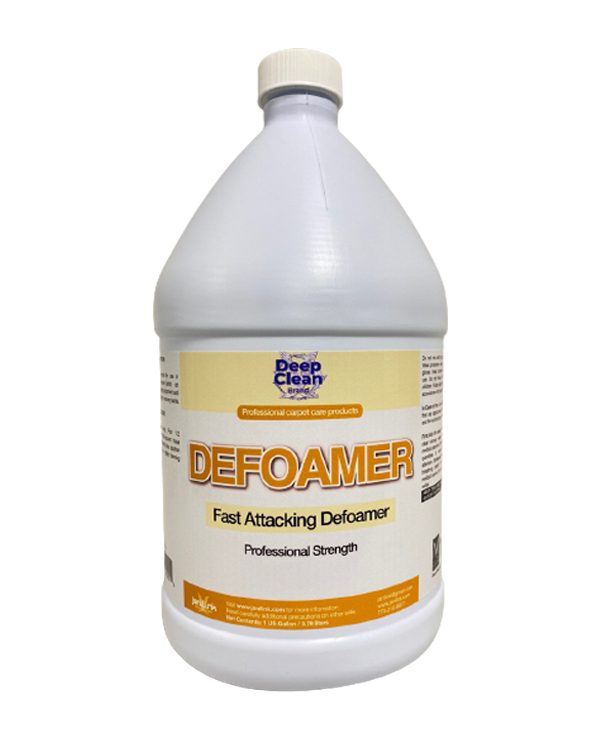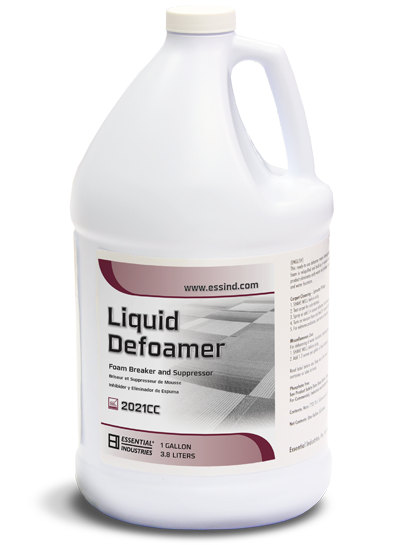Everything You Need to Know About Chemical Defoamer and Its Benefits
Everything You Need to Know About Chemical Defoamer and Its Benefits
Blog Article
The Significance of Utilizing a Chemical Defoamer in Different Applications
The application of chemical defoamers is an essential consideration throughout several industries, including food processing, wastewater therapy, and drugs. These agents play a pivotal role in mitigating foam development, which can impede effectiveness and compromise item quality.
Understanding Foam Formation
Foam formation is an intricate physical sensation that takes place when gas bubbles are entraped within a liquid matrix, resulting in the production of a stable framework. This process can be affected by various factors, consisting of the viscosity of the liquid, the surface area tension at the gas-liquid user interface, and the existence of surfactants. Surfactants lower the surface area stress, promoting bubble production and stablizing, which frequently leads to the formation of foam in lots of commercial processes.
Foams are frequently encountered in applications such as food production, wastewater therapy, and chemical manufacturing. In these contexts, foam can function as an insulator, disrupt mixing processes, or impede the efficiency of equipment. The stability of foam is figured out by the balance between the pressures acting to support the bubbles and those that advertise their collapse.
Comprehending the technicians of foam development is essential for properly handling its visibility in numerous systems. By comprehending the underlying concepts, markets can create techniques to minimize unwanted lathering, thereby enhancing operational effectiveness and item top quality. This fundamental expertise works as a forerunner to checking out the energy of chemical defoamers, which especially deal with foam-related difficulties in many applications.
Benefits of Chemical Defoamers
Chemical defoamers use significant advantages throughout different sectors by efficiently controlling and minimizing foam development. Among the key benefits is enhanced operational efficiency. By lessening foam, chemical defoamers assist keep optimum manufacturing prices and decrease downtime connected with foam administration. This is particularly crucial in processes where too much foam can restrain machinery or interrupt workflows.
Furthermore, chemical defoamers add to enhanced product high quality. Foaming frequently brings about inconsistencies in formulations, which can adversely influence the last item. By controlling foam degrees, defoamers ensure harmony, therefore boosting the overall quality of the output.
Cost-effectiveness is an additional remarkable benefit (Chemical Defoamer). By reducing the quantity of raw materials needed for manufacturing and lowering waste, chemical defoamers can cause substantial financial savings. In addition, they commonly permit reduced power consumption, as procedures can run a lot more smoothly and call for less intervention.
Applications in Food Processing
In the food handling market, efficient management of foam is crucial to guarantee both item high quality and operational performance. Foam can interfere with numerous processes, from blending and blending to product packaging, bring about minimized yields and possible contamination. Chemical defoamers play an important role in alleviating these concerns by quickly breaking down foam, enabling smoother procedures and improved item uniformity.
In applications such as dairy handling, defoamers protect against excess foam formation throughout the production of milk, yogurt, and cheese, which can disrupt machinery and influence the texture of the end product. Likewise, in developing and fermentation processes, foam control is crucial to keep the integrity of the drink and make sure optimum fermentation rates.
Additionally, chemical defoamers are used in food solutions, dressings, and sauces to improve the security and look of the end products. By decreasing foam during manufacturing, suppliers can attain far better mixing and dispersion of components, leading to remarkable top quality. In general, the unification of chemical defoamers in food handling is crucial for maintaining efficiency, quality, and security in food manufacturing.
Duty in Wastewater Therapy
Reliable foam monitoring is just as vital in wastewater therapy processes, where too much foam can impede operations and complicate the treatment of effluents. In lots of wastewater therapy centers, foam can create as an outcome of biological activity, surfactants, or other organic products present in the influent. This foam can cause a variety of functional obstacles, including reduced treatment effectiveness, enhanced upkeep demands, and potential governing conformity problems.
Chemical defoamers play an important function in reducing these obstacles. By lowering the surface area stress of the liquid, defoamers promote the collapse of foam frameworks, therefore assisting in smoother procedure of equipment such as oygenation tanks and clarifiers. Their prompt application helps keep ideal hydraulic conditions, boosting the general performance of solids splitting up procedures.

Effect On Drug Production
Foam control is vital in pharmaceutical manufacturing, where the presence of too much foam can disrupt manufacturing processes and compromise product high quality (Chemical Defoamer). The development of foam during various phases, such official website as mixing, mixing, and fermentation, can lead to ineffective mixing, inadequate warmth transfer, and even equipment damages. my review here These concerns not only lead to operational hold-ups yet can additionally trigger considerable economic losses and impact compliance with stringent regulatory criteria
Chemical defoamers are particularly developed to reduce these obstacles. By effectively decreasing foam formation, they boost procedure efficiency and preserve the honesty of the end product. Particularly, defoamers make sure regular dosage types, improve the stability of emulsions and suspensions, and enhance cleaning processes by avoiding foam accumulation in equipment.
In addition, making use of defoamers can optimize the return of energetic pharmaceutical components (APIs) by advertising better extraction and filtration processes. As pharmaceutical business strive to boost item top quality while reducing production prices, the duty of chemical defoamers ends up being increasingly essential - Chemical Defoamer. Their incorporation right into manufacturing methods not just supports compliance with Good Production Practices (GMP) yet additionally fosters innovation and competitiveness in a rapidly progressing industry

Conclusion

Chemical defoamers provide substantial advantages throughout different markets by successfully decreasing and regulating foam development. By minimizing foam, chemical defoamers aid maintain ideal manufacturing rates and minimize downtime connected with foam monitoring. Chemical defoamers play a critical function in mitigating these problems by swiftly breaking down foam, enabling for smoother procedures and enhanced product uniformity.
Reliable foam administration is just as essential in wastewater therapy procedures, where excessive foam can impede procedures and make complex the treatment of effluents.Foam control is essential in pharmaceutical production, where the visibility of too much foam can interfere with making processes and compromise item quality.
Report this page